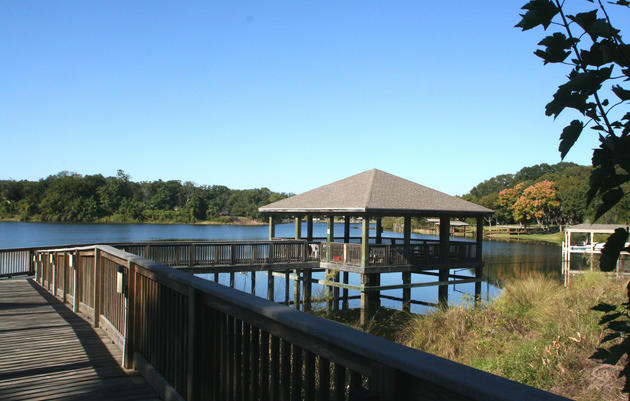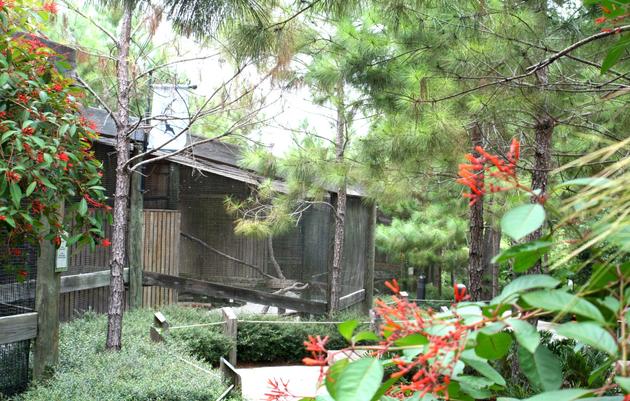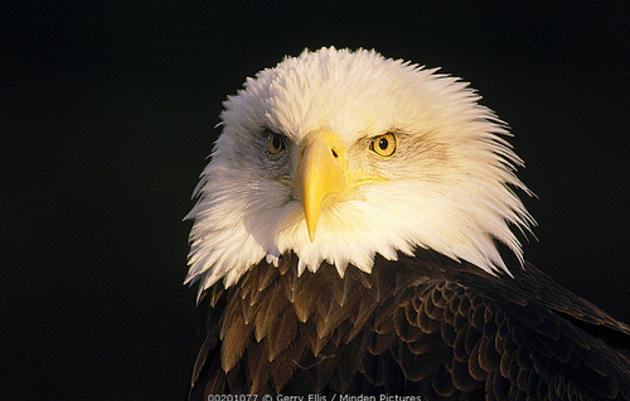Clinical/Rehabilitation Programs
Clinical and Rehabilitation Programs
Scientists and veterinarians across the country continually seek out the Center for its expertise in caring for and rehabilitating birds of prey. Working in partnership with local veterinarians, the Center is constantly creating and utilizing pioneering medical advancements such as laser surgery and whirlpool bath therapy to lessen the time injured birds spend in recovery. Audubon Center for Birds of Prey provides the five “Rs” through Rescue, Recovery, Rehabilitation and Release of sick, injured and fallen baby raptors. A fifth “R” includes Research.
Rescue
The general public is a great help in the rescue and transport of birds of prey (raptors) to the Center. They often bring in nestling raptors that have fallen from their nests (most of which will be reunited with their families once deemed healthy and uninjured). An Average of 35% of Audubon raptor patients are received from other wildlife rehabilitators from all over the state (and occasionally from northern states in the winter). How to Rescue an Injured Raptor.
Recovery
Sick, injured or baby raptors are given a complete physical examination and diagnostic tests upon arrival, and medical and nutritional requirements are determined and begun. Examples of common illnesses and injuries are fractured bones, eye trauma, dehydration, emaciation, and poisoning.
The raptor clinic building is a 2,500 square foot, climate-controlled environment with a central examination and treatment area. There are separate recovery rooms for large owls, hawks, small owls, and eagles. Additionally, there is an intensive care room and three indoor mews (raptor cages) for long-term care. The laboratory is equipped with diagnostic equipment. Surgeries are preformed at the Center’s veterinarians' offices.
Rehabilitation
The Center’s ultimate goal is to “rehabilitate and release” every raptor that comes to our care. Just over 40% of our raptor patients can be returned to the wild. Patients that survive but cannot be returned to the wild due to their disability are placed in qualified zoological parks or nature centers across the country.
Once patients have completed their medical care in the raptor clinic, rehabilitation begins. This process can take from a few days to 18 months. Audubon maintains a wide range of various-sized flight enclosures; all meet or exceed the recommended minimum standards for raptor rehabilitation.
Release
After weeks or months of care and rehabilitation, the birds are set free! Many rehabilitated raptors are returned to the site they were originally found where they know the territory. Some need to be relocated due to the inappropriate area that they were found. Bald Eagles are banded upon release for further identification.
Research
Audubon Center for Bird of Prey has assisted in numerous research projects from Bald Eagle sexing studies to lead test analysis. Resident raptors have participated in research perfecting equipment to tag and track birds like Crested Caracara and Osprey. Staff have supplied data, blood samples and other specimens to researchers and museums.
Medical Miracle Workers
The Center has worked with Robert Hess, DVM, owner of Winter Park Veterinary Hospital, since 1982. Caitrine Hellenga, DVM also assists Dr. Hess in raptor care. Two veterinary ophthalmologists, Daniel Priehs, DVM, Heidi Denis, DVM, and Dr Church DVM of Animal Eyes Associates, generously donate their services to the Center. Our raptor staff consists of a Certified Veterinarian Technician, a Raptor Technician, and a Rehabilitation Technician. Numerous volunteers assist in the daily care of the birds.
Related
Audubon Center for Birds of Prey
Founded in 1979 in Maitland, the Audubon Center for Birds of Prey has treated over 20,000 birds.
Plan Your Visit to the Audubon Center for Birds of Prey
No visit to the Orlando area is complete without a stop at our amazing Center.
How to Help a Sick or Injured Raptor
Instructions on what to do if you encounter a sick or injured bird of prey.
How you can help, right now
Donate to Audubon
Help secure the future for birds at risk from climate change, habitat loss and other threats. Your support will power our science, education, advocacy and on-the-ground conservation efforts.
Become a Monthly Donor
Donating monthly is flexible, easy and convenient and makes you a champion birds can count on, no matter the season.
Volunteers Needed
Florida's birds and wildlife need your time and energy. Learn how you can become a citizen scientist or a volunteer at one of our nature centers today.






